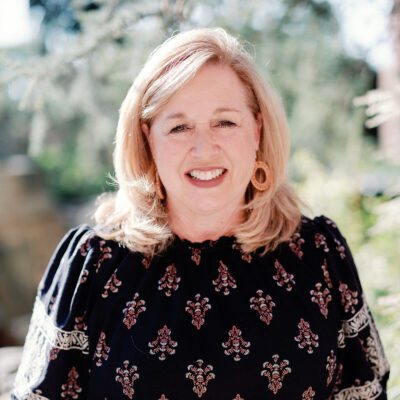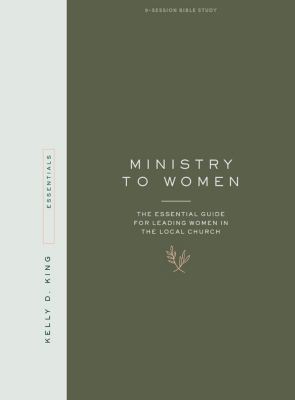
If you are a pastor or church leader considering ways to equip women to begin a women’s ministry, here are four things to consider.
By Kelly D. King
Lifeway Research’s State of Ministry to Women report revealed nearly 40% of churches do not have an organized women’s ministry. Yet those with such a ministry report women have stronger relationships, opportunities to be restored and refreshed spiritually, and a place to openly discuss faith topics and questions.
This is not surprising in many ways. And it is a good argument for starting or enhancing the ministry to women in your local church. Gender-specific environments cultivate healthy places for discussion and disclosure of needs. While some may argue mixed-gender groups are the future, there seems to be a timeless need for women to have spaces for single-gender groups. They are more apt to share what they have learned within the context of women-only Bible studies and are also more apt to share personal needs where the church can step in and help. In the research, 56% of women in a church with organized women’s ministry said it provides them with a safe place to be transparent about their needs and hurts.
56% of women in a church with organized women’s ministry said it provides them with a safe place to be transparent about their needs and hurts. Click To TweetEquipping women for the work of ministry
The apostle Paul wrote extensively in the book of Ephesians about the importance of unity and diversity in the body of Christ. In chapter four, he reminded his readers that diversity of giftedness and opportunities for believers to grow in their faith characterize a healthy church. Verse 12 says the goal is “to equip the saints for the work of ministry, to build up the body of Christ” (CSB). This is not limited to pastors or elders. Neither is it gender specific. The female saints in your church need you to equip them for ministry—not to take your place but to enhance the existing ministry which, in turn, strengthens the local body of believers.
So, if Scripture includes encouragement to equip believers and research shows the value of having a women’s ministry, where do you begin? If you are a pastor or church leader considering ways to equip women to begin a women’s ministry, here are some things to consider.
“The female saints in your church need you to equip them for ministry—not to take your place but to enhance the existing ministry which, in turn, strengthens the local body of believers.” — @kellydking Click To Tweet1. Prayerfully identify a potential leader within your congregation
You can start by identifying one woman who has a passion for discipleship and evangelism or has the gift of administration. Consider adding a team of women representing various stages of life and spiritual gifts. Pray for women who have the desire to help women grow and whom others respect and follow.
2. Encourage them to find resources and opportunities to learn from others who are more experienced
Consider taking them through the books, Ministry to Women: The Essential Guide for Leading Women in the Local Church and Women Leading Well or enrolling them in the Lifeway Women Academy’s course on Practical Ministry. Look for conferences and training opportunities such as Lifeway’s You Lead events or the annual Women’s Leadership Forum. Discover all the ways you can find training for women through Lifeway here.
In addition to resources that will equip women for practical ministry, be prepared to equip new leaders with helpful resources within your community. If you have a list of recommended counselors, shelters, mental health assistance, or clinics, provide them with a list of resources you trust and would use in your own ministry setting. Women are likely to report incidents of abuse or share needs with another woman, so this is an important help for training new or existing leaders.
3. Consider budget priorities and provide funds that will enhance women’s opportunities to grow in Bible studies and training events
The recent research showed 32% of women churchgoers said the Bible studies their churches offered for women most encouraged them in their walks with Christ. Based on another research study done by Barna, CEO David Kinnamon shared on the Carey Nieuwhof Leadership podcast that moms with children under the age of 18 mentioned small groups as their favorite thing about church—a whopping 63%. Considering Lifeway Research’s findings along with this statistic, women’s ministry leaders should consider offering multiple studies at various times during the week to reach more women, especially younger ones. In addition, if you’re looking for ways to equip women to teach the Bible on their own, there are Lifeway Women Academy courses in hermeneutics and theology. These courses are taught by women and specifically geared toward women.
4. Do not discount the importance of events and the opportunities they present to gather women for connection and friendship
Nearly 4 in 5 women (77%) whose church offered fellowship events attended at least one in the last year. More than 2 in 5 (41%) female churchgoers say events that included meals were most helpful to them in finding community with women in their church. And 31% said holiday events were most helpful.
Nearly 4 in 5 women (77%) whose church offered fellowship events attended at least one in the last year. Click To TweetIt is no coincidence that the early church was characterized by breaking bread together and enjoying the fellowship of like-minded believers. It is as valuable today as it was in the first-century life of the early church. The question then becomes: How will you continue to equip the future of the church?
For permission to republish this article, contact Marissa Postell Sullivan.

Kelly King
Kelly is the women’s minister at Quail Springs Baptist Church in Oklahoma City. She is the author of Ministry to Women: The Essential Guide to Leading Women in the Local Church. Kelly is a contributor to the Lifeway Women’s Bible, as well as several Lifeway Women Bible studies. She is the cohost of the MARKED podcast for Lifeway Women. She has a Doctorate of Ministry degree from Gateway Seminary.












